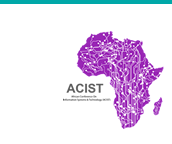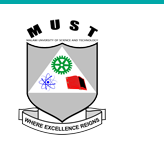Location
Harare, Zimbabwe and Virtual
Start Date
12-9-2024 11:00 AM
End Date
12-9-2024 11:25 AM
Description
This research paper explores the development of the Duramazwi Digital System, a comprehensive platform that integrates digital tools and technologies to enhance the experience of linguists and language learners. By combining the use of a dashboard, API, mobile app, and chatbot to provide users with seamless and interactive language learning experience. The study adopted the Activity Theory as its guiding theory for theoretical insights on natural language processing systems, language and learning. The methodology employed in this research follows the Design Science Research approach. The study utilizes various data collection techniques. The paper presents the system design and implementation details, including identification of milestones, requirement analysis, and development of various system diagrams. The study concludes by highlighting the strengths and benefits of the Duramazwi Digital System, such as improved performance, availability, maintainability, usability, user-friendliness, and security. The paper also acknowledges the weaknesses and provides recommendations for future maintenance and improvements.
Duramazwi Digital System (Modules Integration)
Harare, Zimbabwe and Virtual
This research paper explores the development of the Duramazwi Digital System, a comprehensive platform that integrates digital tools and technologies to enhance the experience of linguists and language learners. By combining the use of a dashboard, API, mobile app, and chatbot to provide users with seamless and interactive language learning experience. The study adopted the Activity Theory as its guiding theory for theoretical insights on natural language processing systems, language and learning. The methodology employed in this research follows the Design Science Research approach. The study utilizes various data collection techniques. The paper presents the system design and implementation details, including identification of milestones, requirement analysis, and development of various system diagrams. The study concludes by highlighting the strengths and benefits of the Duramazwi Digital System, such as improved performance, availability, maintainability, usability, user-friendliness, and security. The paper also acknowledges the weaknesses and provides recommendations for future maintenance and improvements.



